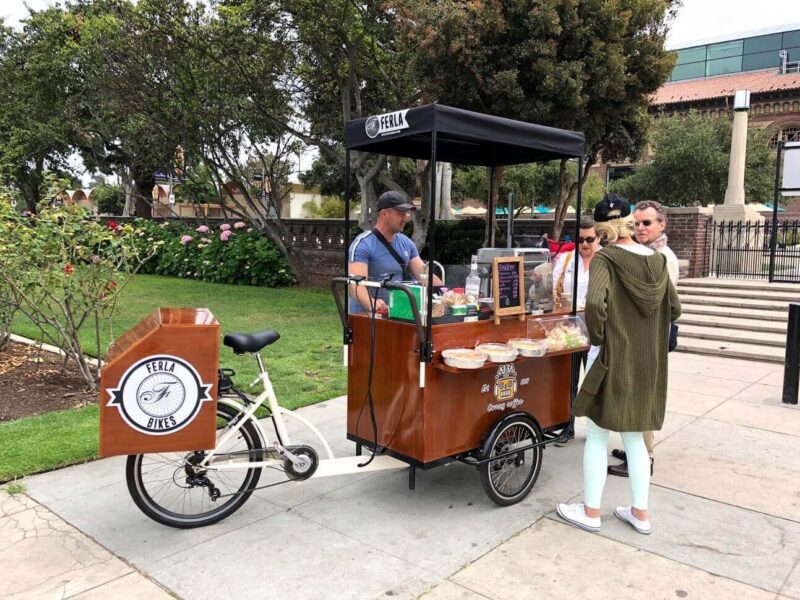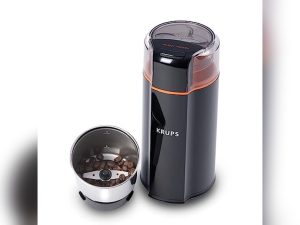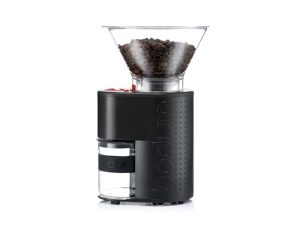Imagine waking up each morning, not to the blare of an alarm clock, but to the rich aroma of freshly brewed coffee. You’re not just sipping it—you’re serving it, right from your very own coffee cart.
If you’ve ever dreamed of turning your passion for coffee into a thriving business, you’re in the right place. Starting a coffee cart business can be your ticket to entrepreneurial freedom, allowing you to be your own boss while sharing the joy of a perfect cup of joe with others.
But how do you get started? What are the secrets to standing out in a competitive market? In this guide, you’ll discover everything you need to know to launch your coffee cart business successfully. From choosing the right location to brewing the perfect cup, we’ve got you covered. Ready to turn your coffee dreams into reality? Let’s dive in and explore the steps to get your coffee cart rolling.
Market Research
Starting a coffee cart business begins with market research to understand customer preferences and local competition. Assess location viability, potential customer base, and popular coffee trends. This information helps create a business plan tailored to meet market demands.
Starting a coffee cart business is a thrilling venture filled with the aroma of opportunity. But to brew success, you must first undertake thorough market research. Understanding your market is the compass that guides your business decisions. Let’s break it down into essential components that will set your coffee cart apart.Target Audience
Identifying your target audience is crucial. Who will buy your coffee? Is it the early morning joggers or the late-night students? Imagine your ideal customer. Think about their habits, preferences, and lifestyle. Conduct surveys or informal interviews to gather insights. This understanding helps you tailor your menu and marketing strategies.Competitor Analysis
Competition is fierce in the coffee industry. Who are your competitors, and what do they offer? Visit their locations, observe customer interactions, and try their coffee. Take notes on what they do well and areas where they fall short. This can inspire you to refine your unique selling proposition. Consider what makes you different. Is it your unique coffee blend, superior customer service, or strategic pricing?Location Scouting
Location can make or break your coffee cart business. Where will you park your cart? High foot traffic areas like parks, office districts, or college campuses are ideal. Check local regulations for operating a mobile food business in these areas. Spend time in potential locations at different times of the day. Observe the flow of people and imagine how your cart fits into the scene. Can you picture people lining up for your coffee? By conducting diligent market research, you position your coffee cart business for success. What insights have you gained that could transform your coffee cart into a must-visit destination?
Credit: ferlabikes.com
Business Plan Essentials
Creating a solid business plan is crucial for your coffee cart venture. It acts as a roadmap for your success, guiding every step. Let’s dive into the essentials that will help you build a strong foundation for your business.
Mission Statement
Your mission statement defines your purpose. It should be clear and concise. Focus on what makes your coffee cart unique. Highlight your commitment to quality and customer satisfaction. Think of it as your promise to your customers.
Financial Projections
Financial projections give insight into your future earnings. Start by estimating your initial costs. Include equipment, supplies, and permits. Predict your monthly expenses like rent and salaries. Next, calculate your expected revenue. Consider your sales goals and pricing. This helps you forecast profits and plan for growth.
Marketing Strategy
Your marketing strategy attracts customers to your cart. Identify your target audience. Are they busy commuters or weekend shoppers? Choose effective channels to reach them. Social media is great for engaging potential customers. Offer promotions and discounts to build interest. Create a strong brand image that resonates with your audience.
Legal Requirements
Starting a coffee cart business requires meeting legal requirements like obtaining necessary permits and licenses. Compliance with health and safety regulations is crucial to ensure food safety. It’s essential to check local zoning laws to operate in your desired location.
Starting a coffee cart business involves understanding legal requirements. Compliance is crucial for success. Let’s explore the necessary permits, licenses, and regulations.Permits And Licenses
Every coffee cart needs specific permits. These are essential to operate legally. First, you need a business license. It allows you to conduct business in your area. Check local laws for specifics. Next, apply for a vendor permit. This lets you sell in public spaces. Contact your local government for details. Permits vary by location. Research is vital. Understand what your area requires. This ensures smooth operations.Health And Safety Regulations
Health regulations protect customers. Your coffee cart must meet safety standards. Keep food handling areas clean. Sanitation is key. Check guidelines from health departments. They dictate hygiene practices. Regular inspections might occur. Stay prepared. Follow food safety rules. This builds trust with customers. Safe practices attract more business. Training staff in health protocols is wise. Knowledge prevents issues. Keep updated on health regulations. Compliance is ongoing.Cart Design And Equipment
Starting a coffee cart business requires thoughtful design and equipment selection. Choose a compact, durable cart that fits your brand image. Ensure it has essential equipment like espresso machines and grinders for smooth operations.
Starting a coffee cart business can be an exciting venture. The design and equipment you choose are crucial for creating a memorable customer experience. Making the right choices can set you apart from competitors and help you attract loyal customers. Let’s dive into how you can get started with designing your coffee cart and selecting the best equipment.Choosing The Right Cart
Your coffee cart is the heart of your business. It needs to be functional and inviting. Consider the space where you’ll set up; is it a bustling city street or a quiet park? A sleek, modern design may suit urban areas, while a rustic look might appeal more in tranquil settings. Make sure it’s easy to move and fits your operational needs. Think about the layout. You need space for your equipment, but also room for you to work comfortably. A cramped cart can slow you down during busy periods. Aim for a balance between aesthetics and practicality. Remember, your cart is not just a workstation, it’s a visual advertisement for your business.Essential Equipment List
Equipping your coffee cart with the right tools is vital. Here’s a straightforward list to get you started: – Coffee Maker: Choose a reliable machine that can handle your expected volume. – Grinder: Freshly ground coffee is a must for quality brews. – Water Heater: Ensure you have hot water ready for every cup. – Refrigeration: You’ll need to keep milk and other perishables fresh. – Storage: Organize your supplies for easy access. You might also want a blender if you’re offering iced coffee or smoothies. Consider your menu and decide what’s necessary. Investing in quality equipment can save you from costly repairs later.Customization Tips
Your cart should reflect your brand’s personality. Adding custom touches can create a unique experience for your customers. Think about colors, signage, and even the aroma of your coffee. Personalize your cart with your logo and brand colors. This creates a professional look and helps with brand recognition. Adding chalkboard menus can provide flexibility and a homey feel. Consider lighting for evening operations, and music to enhance the ambiance. Small details can make a big impact. Would you want to visit a cart that feels like a mini café? Your customers will too. Your coffee cart can be a conversation starter. What story does your cart tell? Engage with your customers and make them feel part of your journey.Supplier Partnerships
Building strong supplier partnerships is crucial for a successful coffee cart business. Reliable suppliers ensure consistent quality and prompt delivery of coffee beans and essential supplies. Establishing clear communication helps build trust and fosters long-term relationships, crucial for smooth operations and customer satisfaction.
Starting a coffee cart business involves many steps. One crucial aspect is supplier partnerships. These partnerships ensure a steady supply of quality ingredients. They also help in maintaining consistent product offerings. Building strong supplier relationships can lead to better prices and exclusive deals. Below, we’ll explore the key areas of supplier partnerships.Coffee Bean Selection
Choosing the right coffee beans impacts taste. High-quality beans attract more customers. Consider beans with rich flavors and unique profiles. Research different types, like Arabica or Robusta. Understand their taste, aroma, and origin. This knowledge helps in selecting the best beans for your cart.Local And Sustainable Options
Local suppliers often offer fresh and sustainable products. Supporting local businesses builds community ties. It also reduces transportation costs and environmental impact. Sustainable options appeal to eco-conscious customers. Look for suppliers who practice fair trade and organic farming. This approach strengthens your brand’s ethical image.Building Relationships
Strong relationships with suppliers ensure reliability. Communicate regularly to build trust and understanding. Clear communication helps in negotiating better terms. Visit suppliers to understand their operations. Personal visits show commitment and foster goodwill. Long-term partnerships can lead to exclusive products and discounts.
Credit: coffeeshopstartups.com
Staffing Needs
Determining staffing needs is crucial for a coffee cart business. Assess peak hours and busy locations to decide the number of employees required. Efficient staffing ensures smooth operations and satisfies customer demands promptly.
Starting a coffee cart business is an exciting venture, but one crucial aspect you must consider is staffing. The right team can elevate your business from good to great. Choosing skilled and enthusiastic staff ensures your coffee cart stands out and thrives. Staffing is not just about filling positions; it’s about creating a community that loves coffee as much as you do.Hiring Baristas
Hiring the right baristas is essential. Look for individuals with a passion for coffee and a knack for customer service. They should be able to make a perfect espresso shot and engage with customers warmly. Consider hosting a coffee tasting session as part of your interview process. It gives potential hires a chance to showcase their skills and creativity. Wouldn’t you want someone who not only makes great coffee but also serves it with a smile?Training Programs
Investing in training programs is key. Well-trained baristas will keep your customers coming back. Set up a structured training routine that covers coffee brewing techniques, equipment handling, and hygiene standards. Think about including workshops with seasoned coffee experts. This not only enhances skills but also fuels enthusiasm. How much more confident will your team be after learning from the best?Customer Service Skills
Customer service is the heart of your coffee cart. Baristas should be adept at handling both busy mornings and quiet afternoons with charm and efficiency. Cultivating excellent customer service skills ensures a memorable experience for your patrons. Encourage your staff to engage with customers, share coffee stories, and remember regulars’ orders. It’s these small touches that create loyalty. What kind of impression do you want your coffee cart to leave?Marketing And Branding
Starting a coffee cart business involves strategic marketing and effective branding. Attract customers with a catchy name and appealing logo. Use social media to share your story and engage with the community. Engage customers with unique offers and consistent quality to build a loyal following.
Marketing and branding are crucial elements when starting your coffee cart business. They determine how your customers perceive your business and can significantly impact your success. By establishing a strong brand and utilizing effective marketing strategies, you can create a loyal customer base and stand out in the competitive coffee market.Creating A Unique Brand
Your brand is more than just a logo or a catchy name. It’s the personality of your business. Think about what makes your coffee cart special. Is it the unique blend of beans or the friendly barista service? Reflect these qualities in your branding. Consider your own experiences as a coffee lover. Maybe you cherish the warmth of a cozy café or the quick convenience of a street cart. Use these insights to craft a brand that resonates with your target audience. Ask yourself, what do you want your customers to remember about your coffee cart? Is it the taste, the service, or the vibe? Your answers will guide your branding decisions.Social Media Engagement
Social media is a powerful tool for engaging with your audience. Platforms like Instagram and Facebook allow you to connect with customers in real-time. Share photos of your coffee creations, behind-the-scenes stories, and customer testimonials. Interact with your followers by responding to comments and messages. This builds a sense of community around your brand. Consider hosting live sessions where you showcase new products or demonstrate brewing techniques. Have you considered running a photo contest? Encourage customers to share pictures enjoying your coffee. This not only boosts engagement but also acts as free promotion for your brand.Promotional Strategies
Promotions can attract new customers and retain existing ones. Offer discounts or loyalty programs to encourage repeat business. A simple “buy 5 coffees, get 1 free” deal can motivate your customers to return. Collaborate with local businesses or events to expand your reach. Set up your cart at a community fair or partner with a bakery to offer a combo deal. Think about the last time you tried a new coffee shop. Was it because of a special promotion or a recommendation from a friend? Use similar strategies to draw people to your cart. Your promotional strategies should align with your brand. If your brand is about sustainability, consider offering discounts for customers who bring reusable cups.Operational Strategies
Starting a coffee cart business involves planning. Choose a busy location to attract customers. Create an efficient menu and pricing strategy. Secure necessary permits and equipment. Focus on quality ingredients and friendly service.
Starting a coffee cart business involves more than just brewing coffee. Effective operational strategies are vital for success. These strategies help you maintain efficiency and serve customers better. Let’s explore some key operational aspects of running a coffee cart.Daily Routine And Workflow
Setting a daily routine keeps your coffee cart on track. Start by cleaning and organizing your cart each morning. Check all equipment to ensure it functions well. Prepare your ingredients and set up your station. This helps you serve customers promptly. Know your peak times and plan your schedule accordingly. Keep a checklist to avoid missing any tasks.Inventory Management
Proper inventory management prevents shortages and waste. Keep track of your stock daily. Record each sale to understand which items sell the most. Order supplies regularly based on demand. Use a simple spreadsheet or inventory app. Avoid overstocking to minimize waste. Check expiration dates to ensure all products are fresh. Regular audits help maintain accurate inventory levels.Handling Peak Hours
Peak hours can be challenging but manageable. Anticipate busy times like mornings and lunch breaks. Prepare extra stock and ingredients in advance. Streamline your menu during rush periods. This speeds up service and reduces wait times. Consider hiring extra help during peak hours. Efficient service increases customer satisfaction and boosts sales. Keep your workflow smooth and organized to handle the rush.Customer Experience
Starting a coffee cart business requires a focus on customer experience. Create a warm atmosphere where customers feel valued. Offer personalized service and delicious coffee to keep them returning.
Providing an exceptional customer experience is key in the coffee cart business. Customers remember how they feel more than what they buy. Happy customers return and tell others. A memorable experience can set your business apart.Quality Assurance
Quality matters. Ensure every cup of coffee tastes great. Use fresh beans from trusted suppliers. Train staff to maintain consistency. Regularly check equipment for any issues. Quality assurance builds trust with customers.Feedback And Improvement
Customer feedback is vital. It shows you what works and what doesn’t. Encourage customers to share their thoughts. Use social media, surveys, or casual chats. Listen and make changes where needed. Improvement shows you care about customer satisfaction.Building Loyalty
Loyalty programs keep customers coming back. Offer discounts or free drinks after a certain number of purchases. Personalize the experience by remembering regular customers’ preferences. Host events or promotions to engage your community. Building loyalty ensures a steady stream of happy customers. `
Credit: www.welcomecoffeecart.com
Financial Management
Starting a coffee cart business requires smart financial management. Proper budgeting, pricing strategies, and profit maximization play crucial roles. They ensure your business runs smoothly and stays profitable.
Budgeting And Expenses
Creating a budget is the first step. List all costs related to your coffee cart. This includes equipment, supplies, permits, and marketing. Don’t forget regular expenses like rent and utilities. Monitor these costs closely to prevent overspending.
Track your expenses regularly. Use simple tools or apps to help. Compare your budget with actual spending. This helps identify areas where you can cut costs or improve efficiency.
Pricing Strategy
Setting the right price for your coffee is crucial. Research the local market to understand competitor pricing. Consider the quality of your coffee and customer preferences.
Factor in all expenses when determining prices. Ensure your prices cover costs and generate profit. Offer different sizes or add-ons to attract more customers and increase sales.
Profit Maximization
Maximizing profit involves more than just pricing. Focus on increasing sales volume. Offer promotions or loyalty programs to retain customers. Happy customers often return and bring friends.
Optimize your operations to reduce waste and costs. Efficient processes lead to lower expenses and higher profit margins. Regularly review your financial strategy for opportunities to improve.
Frequently Asked Questions
Are Coffee Carts Profitable?
Coffee carts can be profitable with low overhead costs and high demand. Location and quality influence earnings significantly. Offering unique beverages and efficient service attracts more customers. Profitability depends on strategic planning, effective marketing, and cost management. Many entrepreneurs find success in this flexible business model.
What Is Needed To Start A Coffee Cart?
To start a coffee cart, you need permits, equipment, a reliable supplier, and a strategic location. Choose a cart design, develop a menu, and ensure quality ingredients. Advertise through social media to attract customers. Focus on customer service and hygiene to build a loyal clientele.
How Much Do Coffee Carts Make A Day?
Coffee carts can earn between $200 to $1,000 daily. Earnings vary by location, customer traffic, and product offerings. Busy areas with high foot traffic typically generate more revenue. Offering unique beverages or snacks can also increase daily income. Operational hours and marketing efforts significantly impact daily earnings.
How Much Does It Usually Cost To Start A Coffee Shop?
Starting a coffee shop typically costs between $80,000 and $300,000. Costs depend on location, size, and equipment. Budget for permits, rent, interior design, and initial inventory. Consider marketing and staffing expenses as well. Always plan for unexpected costs to ensure a smooth launch.
Conclusion
Starting a coffee cart business can be rewarding and fun. Follow your passion and love for coffee. Remember the importance of location and equipment. Plan your budget carefully to avoid surprises. Build strong relationships with suppliers for fresh beans. Keep your menu simple yet unique.
Engage with your customers and build loyalty. Adapting to customer feedback will help you grow. Stay informed about coffee trends to stand out. Keep learning and improving your skills. Your dream coffee cart business is within reach. Take the first step today and enjoy the journey.









